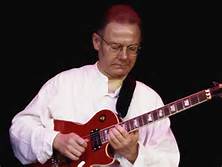
V’yik’khu eilekha fara aduma t’mimah-
And they should take to you a cow that is red, completely...
In Parshat Hukat, it says, Zot hukat haTorah- This is the hok- the decree of the Torah- v’yik’khu eilekha fara aduma t’mimah- and they should take to you a cow that is red, completely.
The red cow is then burned up, and the ashes are mixed with water to make a special potion for purifying anyone who touches a corpse. The premise behind this is that if you touch a corpse, you become tamei, which means ritually unfit or impure, so that you wouldn’t be able to engage in certain rituals without first doing a purification process. So what’s this all about? The Hassidic master, Rabbi Mordechai Yosef, known as The Ishbitzer, taught that “death” represents the past, because the past is over already; it’s dead. The tuma, teaches the Ishbitzer, is really anger or resentment about something from the past. That’s because feelings of negativity and judgment about something that’s already happened keep you stuck- you’re holding on to something that you really need to let go of- and that’s the tuma- the spiritual “contamination” so to speak. Now the red cow is itself the very embodiment of death. Why? Because it’s a living creature that’s completely burned up. It’s also completely red, the color of the blood that bleeds out of a slaughtered animal, as well as the fire that destroys the form of the animal. So why does this symbol of death cure someone from the contamination of death? Because the contamination, the tuma, comes from resisting death- from being angry at something in the past- from not letting go. To be cured from your resistance, you have to accept whatever you’re resisting; you have to embrace it. So paradoxically, it’s in embracing the past that you let go of the past, because being stuck means that you were holding on to an idea of how it should have been. Now that you accept what has been, you get soaked with the ashes of the red cow, so to speak, and you can let go of it. Then you’re tahor- purified from that clinging, that holding on, so that you can fully come into the present, into the sacred dimension of simply Being. So how do you do that? How do you accept whatever you’re resisting, and let go of it? In other words, what are the “red cow ashes” we can use today? There’s a Hebrew cipher known as Atbash in which you connect every Hebrew letter with another Hebrew letter, so that the first letter, alef, gets connected with the last letter, tav. The second letter, bet, gets connected with the second to last letter, shin, and so on. In this way, you can substitute letters in words to come up with new words. According to kabbalah, words that are connected through Atbash have a connection in meaning as well. Now the word for being spiritually whole and pure is tahor. Through atbash we can substitute a nun for the tet, making nahor. Rearrange the letters, and you have rinah- song. And that’s exactly the power of song and music in general- to transform negativity and resistance not necessarily by turning away from it, but by turning into it. Why? Because music makes it feel good to feel bad- hence the blues, as well as a lot of mournful Jewish liturgy, the krekh of the clarinet in Klezmer music, and a thousand other examples. That’s the miracle of music- it makes it feel good to feel bad- it transforms negativity without negating it, allowing you to accept and even embrace whatever it is you’re resisting. And out of that letting go grows the realization that there’s only One Reality- there’s not me, on one hand, and that thing I’m judging, on the other, there’s just What Is- there’s just Hashem- Reality, Being, God. As Rebbe Nachman said, “The most direct means for attaching yourself to God is through music and song. Even if you can't sing well, sing. Sing to yourself. Sing in the privacy of your home, but sing.” But why? How does music work anyway? That’s the great hok, the great mystery of music itself, and its power to bring us deeply into the depths of our present experience and open us to the wholeness that we are. So on this Shabbat Hukat- the Sabbath of the Mystery- I bless you to use your voice in prayer and song. “Even if you can't sing well, sing. Sing to yourself. Sing in the privacy of your home, but sing.” Good Shabbos!
3 Comments
michael
6/30/2017 01:25:24 am
Awesome!!!!! Totally awesome!!!
Reply
Brian Schachter
6/30/2017 01:26:45 am
Thanks for enjoying Michael!
Reply
Martin Towbin
6/30/2017 11:51:48 am
Sweet and healing. Thank you!
Reply
Leave a Reply. |
Archives
July 2024
|
 RSS Feed
RSS Feed